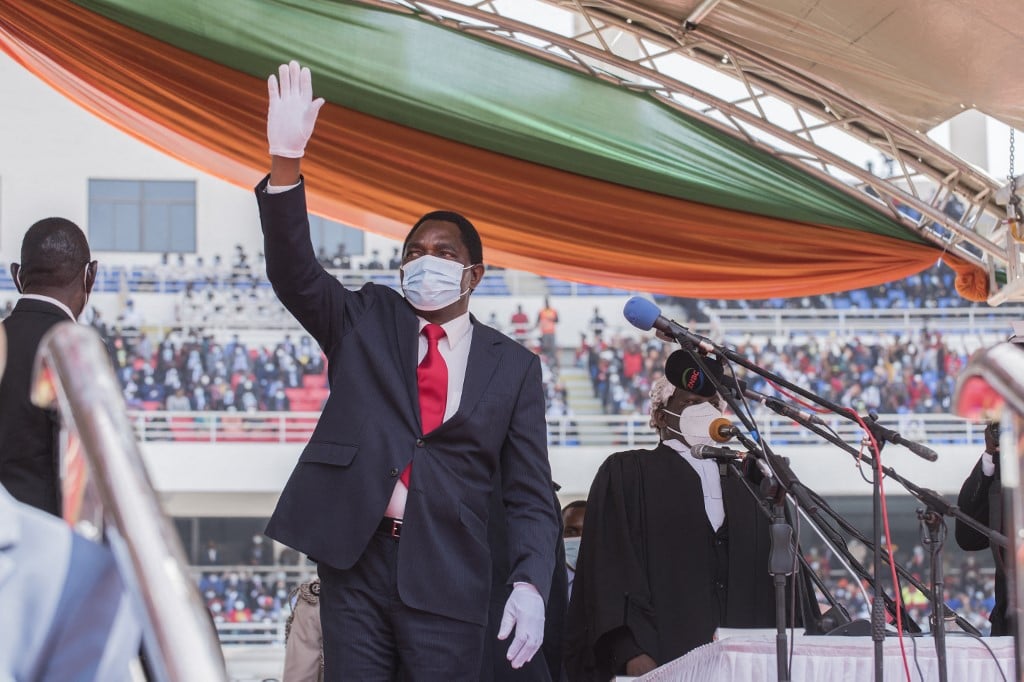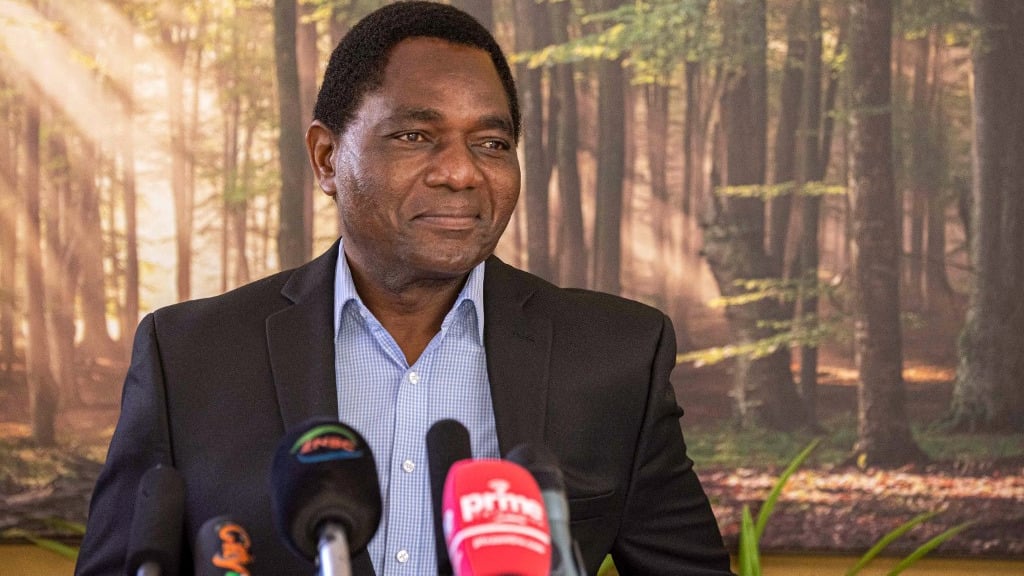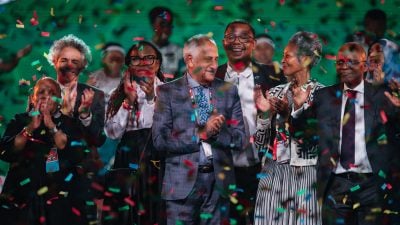A week after taking office, Zambia’s new president Hakainde Hichilema has reshuffled the country’s security forces and kicked-off an economic reform drive.
In a major shake-up of the security sector, the president replaced the heads of the army, air force, prison and police force in an announcement on August 29.
“His swift move is a positive indication that the new era in Zambia puts respect for the Constitution and rule of law above loyalty to the ruling party and president,” says Ringisai Chikohomero, a researcher at the Institute for Security Studies (ISS) think-tank in Pretoria.
The move will restore trust in state institutions as the protectors of the nation – not the ruling party, he added.
On Tuesday, Hichilema vowed to disclose the full extent of the country’s debts and root out corruption as it prepares to seek a bailout from the International Monetary Fund.
Zambia’s economy has borrowed heavily to bankroll questionable infrastructure projects since Lungu took power in 2015
A new independent debt office would also be created to manage the country’s vast debt that could exceed $12.7 billion, President Hichilema told Bloomberg news agency.
Shortly after his victory, the president appointed Situmbeko Musokotwane as the new Minister of Finance. Musokotwane, who held the same post from 2008 to 2011, pledged to conclude talks with the IMF on a lending programme by October.
The president also revealed that talks are ongoing with China to restructure their foreign debt, a quarter of which is held by Chinese entities.
“The Chinese are aware that if the economy is not re-oganised to bring about growth, their own debt stock is at risk. They understand that we need need to talk, we’ve started the initial steps and they have indicated they are willing to cooperate,” he told the BBC on Thursday.
Striking a debt deferral deal with China, their biggest creditor, will be key to keeping the southern African country’s economy afloat, experts says.
The murky details of Zambia’s Chinese debt profile has made it harder to qualify for IMF lending, leading to calls that Hichilema should pass legislation that will require all government loan contracts to be made public.
The IMF is also expected to push for key economic reforms shortly after the election before signing off on a loan agreement. Hichilema had promised to ease the regulatory environment and bring back foreign investment to the mines in the run up to the election, though analysts say it is too early to tell whether his tenure will be a continuation of Lungu’s legacy of aggressive resource nationalism.
In his inauguration on August 24, the former executive at an accounting firm promised a cheering crowd to restore prosperity, stability and jobs to Africa’s second-largest copper producer, which is mired in huge debt and recession owing to depressed commodity prices.

Additional reporting by Tom Collins.
Want to continue reading? Subscribe today.
You've read all your free articles for this month! Subscribe now to enjoy full access to our content.
Digital Monthly
£8.00 / month
Receive full unlimited access to our articles, opinions, podcasts and more.
Digital Yearly
£70.00 / year
Our best value offer - save £26 and gain access to all of our digital content for an entire year!
 Sign in with Google
Sign in with Google 



